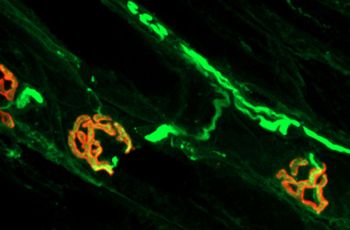Press Archive
Four students from the Physician Assistant Studies Program at the George Washington University School of Medicine and Health Sciences are participating on Students Board Committees with the AAPA Student Academy.
In a new paper published in Seminars in Arthritis and Rheumatism, researchers from GW evaluated the long-term outcomes for patients with juvenile idiopathic inflammatory myopathies.
Lopa Mishra, MD, director of the Center for Translational Medicine at the GW Cancer Center and professor of surgery, Shuyun Rao, PhD, assistant research professor of surgery, and others published research in the journal Gastroenterology finding a connection between bacteria in the…
Congratulations to Maranda Ward, EdD ’17, MPH, assistant professor of clinical research and leadership at SMHS, who earned a spot on the Leadership Center for Excellence’s 40 Under 40 list.
The National Institutes of Health awarded a research team at GW $7.8 million to establish a rare disease network for myasthenia gravis.
Nathaniel DeNicola, MD, co-authored a review article on environmental exposures on reproductive health and how OB-GYNs can work with their patients to ensure safe pregnancies. The piece is published in Obstetrics and Gynecology Clinics of North America.
During a symposium on correctional policy, practice, and care for incarcerated members of the transgender community, held at the GW, stakeholders found that collaborative engagement could help further guidance for this vulnerable population.
Faculty at the George Washington University School of Medicine and Health Sciences (SMHS) will take part in the American College of Rheumatology’s (ACR) 2019 Annual Meeting in November in Atlanta.
The AIDS and Cancer Specimen Resource has been renewed for five years with GW serving as the primary site.
GW Cancer Center researchers found that PTEN, a tumor suppressor gene mutated in approximately 20% of primary prostate cancers, and in as many as 50% of androgen deprivation-resistant prostate cancers, relies on another gene, ARID4B, to function.



